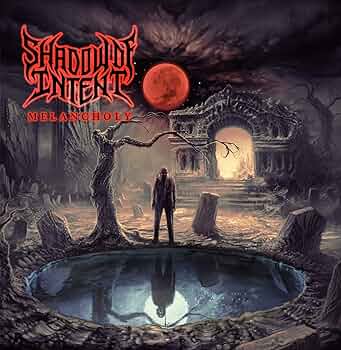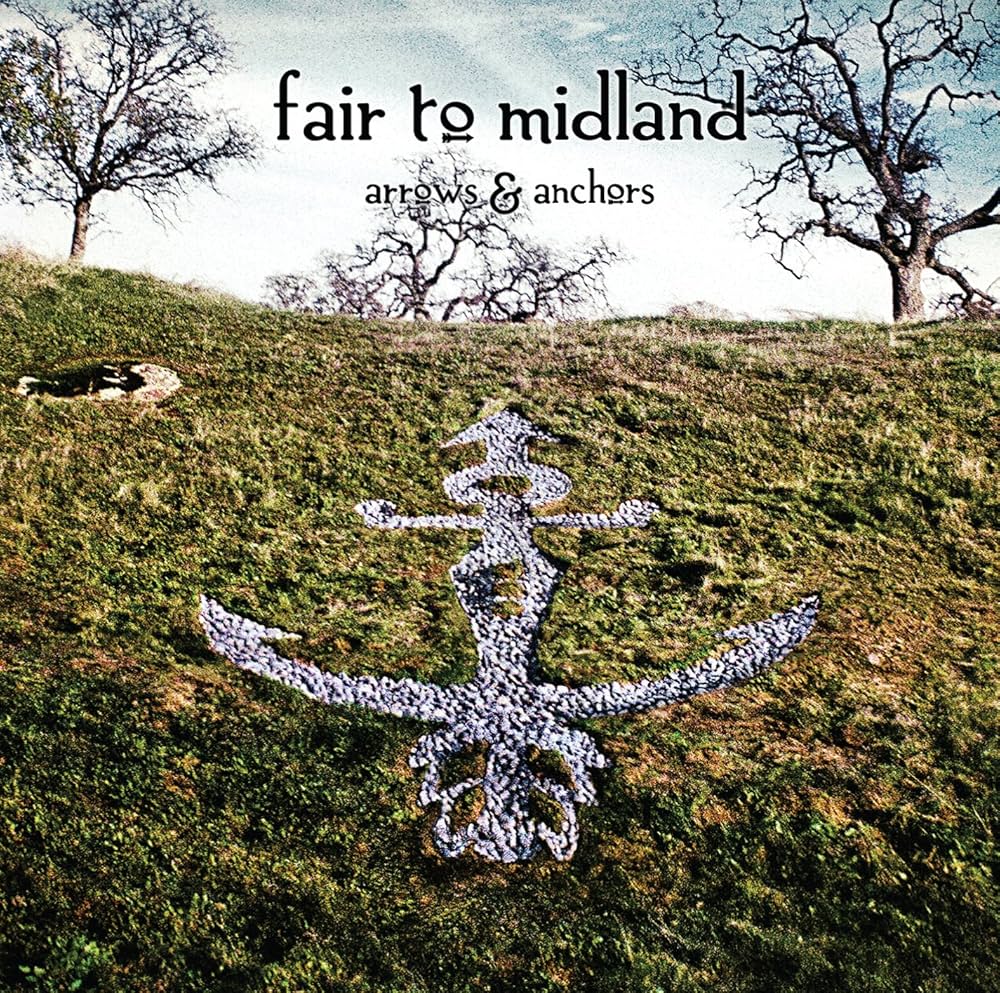When I think of some of the worst genres in music, the first one that comes to mind is Black Metal. My problems stem from the band’s more infamous approach to fame and horrible production/songwriting; however, this past year, my views were changed with the release of Lonely People with Power by Deafheaven. Deafheaven’s approach to the genre is based around Shoegaze and Post-Metal with a heavy application of Black Metal. They would eventually coin the term “Blackgaze.” Throughout their discography, they put each of these on display. For instance, their sophomore record, Sunbather, shows the brighter side of the genre. Their preceding album, Infinite Granite, was a cleaner approach to shoegaze and post-hardcore. Lonely People with Power (LPwP) is a spaghetti-throwing competition with a wall, where everything sticks (perfectly) from all of their other works and coinciding playing styles. To understand how groundbreaking this is, we must rate and study each track to a tee, to show the zenith Deafheaven has put on display.
“Incidental I”: 3
Deafheaven starts LPwP with an instrumental prelude. It establishes the darker atmosphere of the album using synthwork. It’s ominous, and towards the end, “Incidental I,” presents one of the best transitions into the main track I have ever heard.
“Doberman”: 5
The intro transitions into the bombastic guitar work from Shiv Mehra and Kerry McCoy. All of it is a wall of bright distortion heavily reflecting on their early work on Sunbather. I absolutely love the riffs on this track, between the aforementioned atmospheric tremolo picking. Daniel Tracy keeps it simple on the drums, switching between rapid-fire blast beats and steady pocket drumming. Its simplistic nature fits well with the dreamlike aspect of the overall song while hinting at darker depths. George Clark’s vocals are shrill, but with the effects on his EQ’s makes it full. “Doberman” is the physical embodiment of confession. The track covers the idea of fear; however, it never dips into the side of accusatory storytelling but rather observation.
“Magnolia”: 5
Listeners transition into the Thrash-laden side of Deafheaven, reflecting New Bermuda. “Magnolia” has some of the best guitar work from any of their records. Between Mehra’s cleaner tones during the chorus, making it feel otherworldly, in a way, like some of the compositions of Ordinary Corrupt Human Love. The biggest highlight is the switch-up from the bridge to the second verse, with McCoy transitioning from the aforementioned Thrash approach to a more Post-Metal-centric riffwork. The track reflects on loss, relating and illustrating funeral vistas. The song can be summarized as an inverse to “Doberman,” with the “Blackened” parts lying within the verses and the brighter inquiries in the chorus.
“Garden Route”: 3
Unfortunately, listeners witness a dip in the instrumentation. This is more than likely a “me” problem; this track never hit my ear in comparison to the other parts of the tracklist. It feels like a B-side of Ordinary Corrupt Human Love. Perhaps some have a higher insight and/or appreciation for the track than I.
“Heathen”: 5
What an experience. To establish my relationship with this album, it is important to understand I was at the gym, suffering from seasonal allergies, and in need of one thing: to enjoy this album. The first three tracks (at the time) didn’t click with me, but in spite of that, I opened the lyrics tab and followed along with this track. It was a paradigm shift, not just in my day but in how I approached Black Metal from then on. The pure emotional energy from Tracy and the melodic beauty of McCoy and Co. help foundationalize a Post-Hardcore orientation. The composition feels like an echo of their writing on Infinite Granite. It is by far a masterpiece. Clarke’s vocals soar throughout the song and are a point of growth, as a vocalist, and what it means to have range, especially in Metal. “Heathen” is a snapshot of Clarke’s struggle with self-worth. Throughout the track, he documents his turn from relationships, not out of spite for something, but fear. It’s not reflective like “Magnolia,” it is like a call for change in one’s existence.
“Amethyst”: 5
With my brain chemistry changed, I and many other listeners continued onto the next track, “Amethyst.” The long, Shoegazey intro is a beautiful sway to and forth between being reminded there is a darkness under all of this and the elements on display. When the track finally lifts off, the soft magnitude transcends the ear. Again, listeners witness the mastered craftsmanship of Deafheaven, an odyssey of pure emotion and agony. All highlighted at the lead of George Clarke’s masterful narrative. According to George Clarke in an interview with Apple Music, “Amethyst” was the centerpiece of the album; it is the direct translation of the album cover and themes within the album. It covers a lot, including self-mythology, sobriety (as reflected in the title).
“Incidental II (feat.Jae Matthews)”: 3
The second interlude of the album is a huge step outside the box for Deafheaven. It brings back the synthwork from the intro. The addition of Jae Matthews on vocals brings a welcome, but unsettling element to the flow of LPwP. The song is surrounded by industrial synths, giving an extra depth to their instrumentation within their overall discography.
“Revelator”: 5
To be a little nit picky, I wish they had done the same transition between these two tracks as they did for the intro. But other than that particle-esque problem, “Revelator” is one of the heaviest tracks in Deafheaven’s discography. The amount of cardio and coordination Tracy has to do for this song must be debilitating. The many variations of speeds and drum styles encompass the best of Metal. The riffs on display combine the speed and roughness of New Bermuda with the wall-like distortion/brightness of “Doberman.” In a way, “Revelator” fleshes out the heavier guitar work displayed on “Magnolia,” now spread through a six-minute track. The track, in reference to its title, is a prophetic outlook on internal and external summation. It is a culmination of all negative emotions until everything falls apart.
“Body Behavior”: 5
This track is the definition of Blackgaze. Just as the approach to rhythm and the guitars feel super stylistic. The fact that it is hinted at in “Heathen” and then fully fleshed out in this song shows the craftsmanship for not only the individual pieces of work but also the track listings together. There’s something about Clarke’s vocals and their mixing that brings another depth of emotion and a perfected modus operandi. The biggest factor is its lyrical themes. “Body Behavior” is a case study of several factors of growing up as a boy. It tackles society’s common and cannibalistic objectifications of men and their peers. Some would call this “toxic masculinity,” of which, in George Clark’s own experience, affected his outlook on the world, himself, and his relationships (both familiar and intimate). I love the juxtaposition it puts listeners in, with it being so emotionally powerful, but at times uncomfortable with its more explicit lyrics.
“Incidental III”: 3
The final interlude of LPwP is a spoken word by Paul Banks, narrating and reflecting on the idea of loneliness. Since it’s the last one, I want to wrap up my thoughts on the entirety of the “Incidental” series. I absolutely loved the return of these lengthy interludes, which were prominent during the tracklist of Sunbather. In a way, Deafheaven uses these to tie the entirety of the record into a pseudo-concept album.
“Winona”: 4
The final Blackgaze-slanted track is a combination of Sunbather and Ordinary Corrupt Human Love. It’s such a beautiful piece with a verbose feeling throughout the song. Tracy absolutely goes ham on the drums, and the guitar work is more atmospheric than riff-heavy. It reminds me of “Doberman” without the chugging. The track illustrates the self-image and Clarke’s self-sabotaging nature in his young adult years. This song is perfectly cathartic. I felt it was a fitting finale until I heard the next track.
“The Marvelous Orange Tree”: 4
Listeners halt their adrenaline with the Shoegaze-heavy “The Marvelous Orange Tree.” It steps away from the Black Metal towards their approach to Shoegaze as reflected in Infinite Granite. Even though the record wasn’t critically acclaimed. I think it was well-needed for Deafheaven’s artistic growth. The execution of the album felt intimate and nostalgic, not just the use of vocabulary, but also the vividness the record evokes. All of these blueprints are shown in this track. It provides a peaceful ending to an agonizingly reflective album. The track’s subject is idiomatic of emptiness. However, the way the album ends implies the beauty of emptiness and the infinite “black.’ It puts one in a juxtaposition, the freedom of pain, but the sacrifice of clarity.
Overall, LPwP is the zenith of Deafheaven’s catalogue. Obviously, other albums are equally good (especially New Bermuda and Infinite Granite). However, each album breaks down the aspect of the human psyche and Clarke’s own experiences. This is why Lonely People with Power is a mix of every album, both narratively and compositionally. The isolation of each approach in their discography lies within this album, which doesn’t make it a hodgepodge of multiple narratives, but a record of isolation.
“Initially, there was this broad scope that recognised that people who tend to want to amass power, people who tend to seek influence, are also people who tend to lack intimate connections. They’re people who are what I keep describing as spiritually vacant. I think there’s a void there that is often wanting to be filled with this sort of ephemeral influence,” George Clark, Via Apple Music, said.








